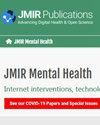亟需以证据为基础的青少年数字心理健康护理实践模式
IF 4.8
2区 医学
Q1 PSYCHIATRY
引用次数: 0
摘要
澳大利亚为青少年提供心理健康服务和支持的机构包括私立和公立联合医疗机构、政府倡议(如 Headspace)、非政府组织(如儿童帮助热线)、全科医生和医院系统。20 多年的研究表明,许多年轻人更愿意在网上寻求心理健康支持,但目前在线和离线心理健康服务内部和之间缺乏明确的客户途径。作者提出了一种针对青少年的数字心理健康实践模式,以帮助绘制数字心理健康服务图。所建议的模式为客户提供了参与数字心理健康服务的便捷途径,提供了清晰的导航以获得满足个人需求的支持,并利用可转移的电子健康记录系统促进与线下心理健康服务的无缝连接。这种面向未来的模式还包括人工智能和元宇宙等新兴技术,必须将其作为数字疗法和支持系统的潜在工具加以考虑。本文讨论了澳大利亚青少年对以用户为中心的数字心理健康实践护理模式的迫切需求,强调了在 COVID-19 大流行期间传统和现有在线分流模式的明显缺陷,以及必须克服的复杂挑战,如整合不同的心理健康护理提供者和建立健全的电子健康记录系统。这种模式的潜在益处包括减轻急诊室的压力、提高对紧急需求的识别能力、加强转诊实践,以及建立一个具有成本效益、全球适用的国家数字心理保健模式。最后,作者强调了不作为的后果,警告说随着新技术的出现,延误可能会导致更复杂的挑战,并加剧不良心理健康管理对澳大利亚年轻人的经济和生物心理社会福祉造成的长期负面影响。本文章由计算机程序翻译,如有差异,请以英文原文为准。
The Urgent Need for an Evidence-Based Digital Mental Health Practice Model of Care for Youth
Australian providers of mental health services and support for young people include private and public allied health providers, government initiatives (e.g., headspace), non-government organisations (e.g., Kids Helpline), GPs, and the hospital system. Over 20 years of research has established that many young people prefer to seek mental health support online, however clear client pathways within and between online and offline mental health services are currently lacking. The authors propose a Digital Mental Health Practice model of care for youth to assist with digital mental health service mapping. The proposed model offers accessible pathways for a client to engage with digital mental health services, provides clear navigation to access support for individual needs, and facilitates a seamless connection with offline mental health services using a transferrable electronic health records system. This future-looking model also includes emerging technologies, such as artificial intelligence and the metaverse, that must be accounted for as potential tools to be leveraged for digital therapies and support systems. The urgent need for a user-centered Digital Mental Health Practice model of care for youth in Australia is discussed, highlighting the shortcomings of traditional and existing online triage models evident during the COVID-19 pandemic, and the complex challenges that must be overcome such as the integration of diverse mental health care providers and establishment of a robust electronic health records system. Potential benefits of such a model include reduced pressure on emergency rooms, improved identification of immediate needs, enhanced referral practices, and the establishment of a cost-efficient national digital mental health care model with global applicability. The authors conclude by stressing the consequences of inaction, warning that delays may lead to more complex challenges as new technologies emerge and exacerbate the long-term negative consequences of poor mental health management on the economic and biopsychosocial well-being of young Australians.
求助全文
通过发布文献求助,成功后即可免费获取论文全文。
去求助
来源期刊

Jmir Mental Health
Medicine-Psychiatry and Mental Health
CiteScore
10.80
自引率
3.80%
发文量
104
审稿时长
16 weeks
期刊介绍:
JMIR Mental Health (JMH, ISSN 2368-7959) is a PubMed-indexed, peer-reviewed sister journal of JMIR, the leading eHealth journal (Impact Factor 2016: 5.175).
JMIR Mental Health focusses on digital health and Internet interventions, technologies and electronic innovations (software and hardware) for mental health, addictions, online counselling and behaviour change. This includes formative evaluation and system descriptions, theoretical papers, review papers, viewpoint/vision papers, and rigorous evaluations.
 求助内容:
求助内容: 应助结果提醒方式:
应助结果提醒方式:


